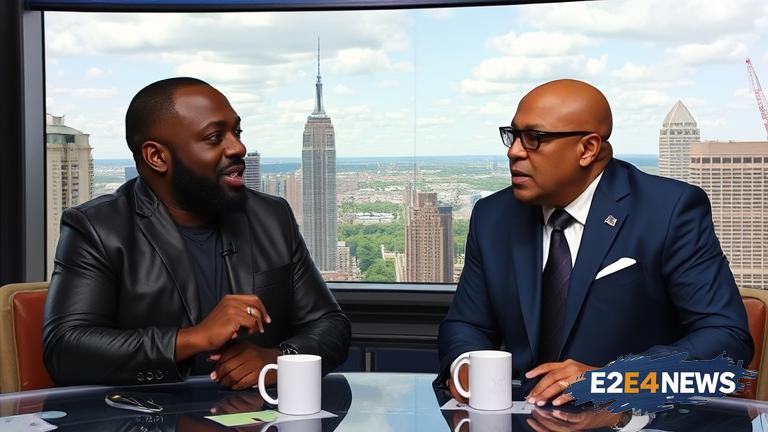Charlamagne Tha God, a prominent media personality, has spoken out against The View, a popular daytime talk show, for its alleged lack of conservative guests. In a recent interview, Charlamagne expressed his disappointment and frustration with the show’s booking practices, stating that it is essential to feature a diverse range of perspectives, including conservative voices. He argued that by not doing so, The View is missing out on opportunities to foster meaningful discussions and debates. Charlamagne’s comments have sparked a heated debate on social media, with some users agreeing with his assessment and others defending the show. The View has been a staple of American television for over two decades, featuring a panel of female co-hosts who discuss current events, politics, and social issues. However, the show has faced criticism in the past for its perceived liberal bias and lack of conservative representation. Charlamagne’s criticism is not the first time the show has been accused of excluding conservative voices. In recent years, the show has faced backlash for its treatment of conservative guests, including a notable incident involving a heated exchange between co-hosts and a conservative commentator. Despite this, The View remains one of the most-watched and influential daytime talk shows in the country. Charlamagne’s comments have also raised questions about the role of media in promoting diversity and representation. Some argue that media outlets have a responsibility to feature a wide range of perspectives, including those that may be considered unpopular or controversial. Others argue that media outlets should prioritize fact-based reporting and avoid giving a platform to extremist or hateful views. The debate surrounding The View and its booking practices is part of a larger conversation about media bias and representation in the United States. Charlamagne’s criticism has also sparked a discussion about the importance of diverse perspectives in media, with some arguing that it is essential for promoting understanding and empathy. However, others argue that the emphasis on diversity and representation can sometimes come at the expense of fact-based reporting and journalistic integrity. The View’s co-hosts have not publicly responded to Charlamagne’s criticism, but the show’s producers have stated that they strive to feature a diverse range of guests and perspectives. Despite this, the show’s critics argue that it has a long way to go in terms of representing conservative voices and promoting meaningful discussions. Charlamagne’s comments have also highlighted the challenges of promoting diversity and representation in media, particularly in the context of a highly polarized and divisive political climate. As the debate surrounding The View and its booking practices continues, it remains to be seen how the show will respond to criticism and whether it will make an effort to feature more conservative guests. In the meantime, Charlamagne’s comments have sparked an important conversation about the role of media in promoting diversity and representation, and the challenges of doing so in a highly polarized political climate. The controversy surrounding The View is also a reminder of the importance of media literacy and critical thinking, particularly in the age of social media and fake news. As consumers of media, it is essential to be aware of the potential biases and limitations of different sources, and to seek out diverse perspectives and fact-based reporting. Ultimately, the debate surrounding The View and its booking practices is a complex and multifaceted issue, with no easy solutions or answers. However, by promoting diversity and representation, and by fostering meaningful discussions and debates, media outlets can play an important role in promoting understanding and empathy, and in helping to build a more informed and engaged citizenry.





